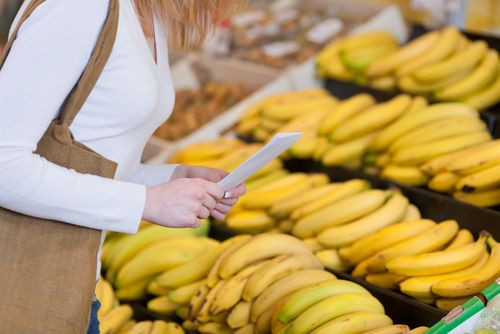National Vegetarian Month: 6 Foods You Think Are Vegetarian But Aren't

Being a vegetarian comes with one simple rule: no meat, poultry, fish, or seafood, or any products that come from them or any part of an animal’s body. Although it seems easy to avoid chowing down a cheeseburger or drumsticks, there are plenty of processed foods on the shelves mistakenly seen as vegetarian friendly. Misleading labels, or the lack of listing all ingredients, makes vegetarians more susceptible to unconsciously break the rules.
The Food and Drug Administration’s Food Allergen Labeling and Consumer Protection Act of 2004 ruling requires food manufacturers to label common food allergens, leading some companies to be more transparent about the source of their ingredients. However, the FDA does not require food companies to clearly indicate all ingredient sources on the label. This has presented concerns for vegetarians and vegans who have to deal with the ambiguity of ingredients like “natural flavors,” which could be derived from either an animal or plant source.
Most common foods considered to be vegetarian actually contain remnants of non-veg food. Vegetarians and non-vegetarians alike still have to deal with shades of gray when it comes to thinking green. Below are the most common foods considered to be vegetarian but, surprisingly, aren’t receiving a green thumb of approval.
1. Altoids
The go-to fresh breath mint may be friendly for your breath but not for your vegetarian needs. Altoids contain gelatin — a thickening agent used to give gummies and yogurt a jelly-like consistency, but it's derived from collagen obtained from various animal by-products. Gelatin is used as a stabilizing agent in Altoids. However, in 2011, the mint company altered the ingredients of their Wintergreen mints, adding blue food coloring. Altoid mints labeled “sugar-free smalls” do not contain gelatin. They are a vegetarian friendly option.
2. Bananas
It may seem “bananas” that this potassium-rich food is not vegetarian, but it turns out a spray-on coating designed to lengthen its shelf life may contain animal parts. Chitosan, a bacteria-fighting compound derived from shrimp and crab shells, is used to prevent bananas from ripening, softening and rotting into mush, according to Science Daily. This presents bad news for vegetarians, vegans and those with a shellfish allergy.
Although the banana itself is fine, it’s the spray used to extend its shelf life that makes it non-veg. Gina Keatley, a New York-based dietician at Keatley Medical Nutrition Therapy, told Medical Daily in an email: “The coating is made of shellfish and works amazingly well; however, this makes the product no longer vegan.” She suggests vegetarians and vegans go organic to avoid the spray.
3. Beer
Not all beer is created equal when it comes to being vegetarian friendly. Guinness beer is known to use fish bladder as a fining agent, meaning it removes unwanted leftovers from the brewing process, and could possibly end up in your pint. However, the beer company does not list it as an ingredient on the label.
According to Keatley, fish bladder is used to filter the yeast in some brands, with the thicker British brands being more prone to using tropical fish bladders to filter. She suggests sticking to the big American brands like Budweiser and Coors, which are both vegetarian and vegan friendly.
4. Chips
The nutrition labels on chips sometimes do not distinguish between animal and plant-based enzymes. FritoLay explains on their website enzymes from pork are used to develop the cheese in some of their cheese seasonings. Their BBQ-flavored baked chips contain chicken fat. However, there are FritoLay chips that are free of pork enzymes for vegetarians and vegans to consume.
5. Orange Juice
Orange juice is marketed as “heart healthy,” meaning manufacturers add omega-3s from anchovies, tilapia, and sardines — unless they are synthetic. “[A]lso the vitamin D added is derived from lanolin, which comes from sheep wool, but this differs from brand to brand,” Keatley said. She suggests opting for fresh squeezed orange juice to avoid the non-veg ingredients.
6. Supplements And Vitamins
Vegetarians and vegans looking to get the daily recommended amount of vitamins and minerals should opt for supplements and vitamins that are not in gel caps. Dr. Jennie Ann Freiman, a New York obstetrician-gynecologist told Medical Daily: “[G]el caps are not vegetarian because the capsule is made of gelatin, which is usually beef (can be fish etc. but less likely).” She believes not many people realize this when they shop for supplements and vitamins.
Keep these six vegetarian foods that are actually non-veg in your back pocket when you go food shopping.
Published by Medicaldaily.com



























